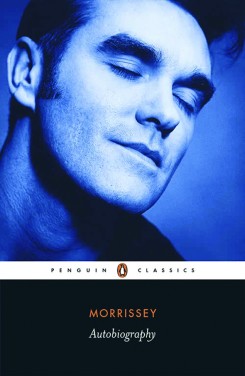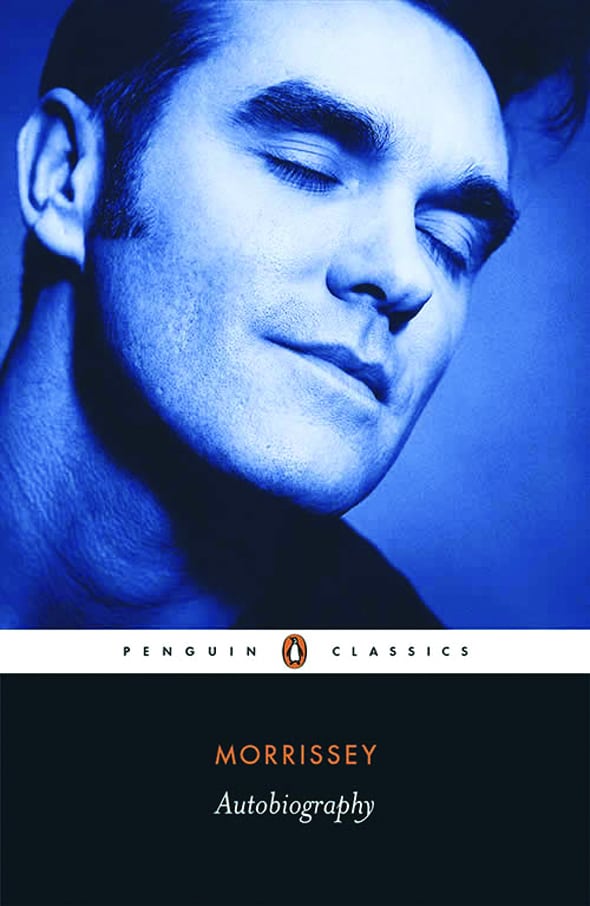“My childhood is streets upon streets upon streets upon streets,” begins Morrissey’s depiction of drab life in Manchester, England — nothing less than what we’d expect from the man who warned us that “everyday is like Sunday, everyday is silent and grey.”
 Morrissey’s succinctly titled Autobiography, is a love letter to the past. Pages of the book are interspersed with humdrum pictures of family and friends, all black and white, and underscored with amusing, thoughtful captions he has written himself. Take for instance the caption below a photo of his bikini-clad mother, which reads: “Mother, always nearest the heart. Staten Island, 1975.”
Morrissey’s succinctly titled Autobiography, is a love letter to the past. Pages of the book are interspersed with humdrum pictures of family and friends, all black and white, and underscored with amusing, thoughtful captions he has written himself. Take for instance the caption below a photo of his bikini-clad mother, which reads: “Mother, always nearest the heart. Staten Island, 1975.”
The bulk of Autobiography is dedicated to casting aspersions on everyone from old flames, to NME magazine, to the man credited with discovering The Smiths’, John Peel. The narrative of the book is built on breaking all ties, sometimes with the writing slipping into digression; as in the campy moments where Morrissey details his favourite boy bands and girl groups of the ’60s for pages on end. These occasions of indulgence bare ghastly similarities to those of Patrick Bateman in American Pyscho and his parodic expositions of ’80s pop music — moments which occur, similarly enough, just before Bateman slashes into another one of his houseguests.
For better or worse, taking down everyone in his past is exactly what Morrissey himself has set out to do with Autobiography. For Morrissey, it seems, there has never been a subject too hallowed or too sacred for ill-tempered vivisection. Large chunks of the book read like polemical, hot-blooded paroxysms. Apart from these moments of malice, Autobiography is a masterful tour-de-force. It is a book which compromises the Mancunian life of a young English schoolboy-turned-lovelorn poet-musician, but it leaves the reader with a bitter and unsavoury taste in the mouth. Then again, maybe that was the point. One gets the impression that these bouts of malevolence are sparked by perceived slights and betrayals from those whom Morrissey had once loved.
Autobiography reads like the narrative of any great love-tragedy. As Morrissey favourite, Oscar Wilde, says: “Life imitates art far more than art imitates life.” Published by Penguin Classics, Autobiography earns Morrissey his rightful place on the bookshelf, alongside his boyhood idols Tolstoy, Dickens, and Twain.


